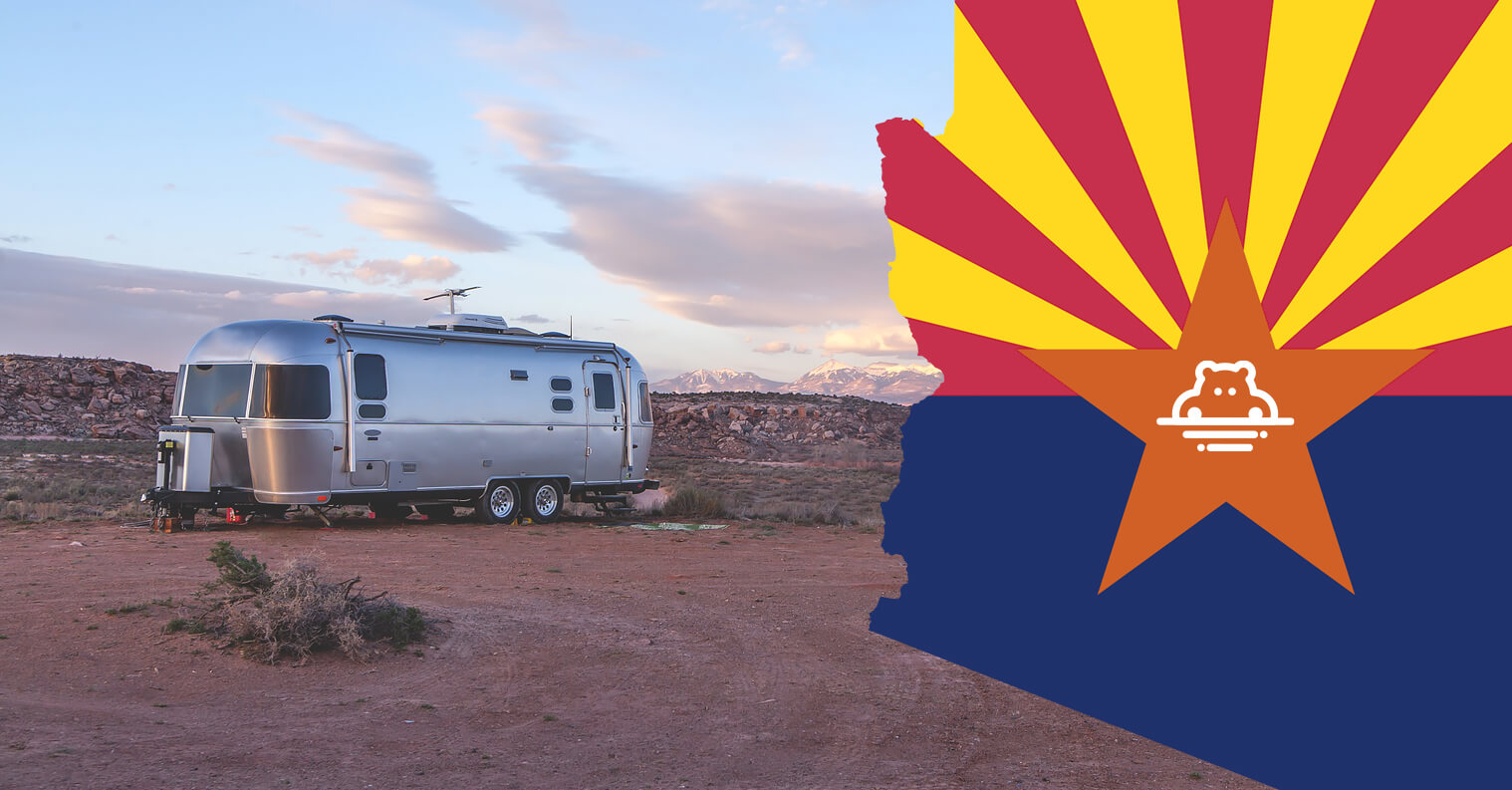What Arizona residents need to know before insuring their mobile homes.
In recent years, Arizona has been one of the fastest-growing states in the country. It’s a popular place for retirees and snowbirds (people who relocate to escape harsh winters). Many Arizona residents choose to live in manufactured and modular homes.
Regardless of the kind of home you live in, it’s important to have home insurance in Arizona — or home insurance in Phoenix. And if you’ve purchased a manufactured or modular home, your insurance needs may be different than the needs of someone who owns a traditional, single-family home.
Mobile home insurance is designed for homes that are anchored to the ground and built using lighter materials. Modular home insurance, on the other hand, is for homes that are built in sections, adhere to strict building codes and are constructed using high-quality materials.
Insuring a mobile home
Before you start shopping for insurance, it’s important to understand whether the property you purchased is a mobile or manufactured home.
Mobile homes have technically been around since the 1500s. But the ones we’re most familiar with today appeared in the early 1900s around the time when automobiles became popular and people needed to move to areas where they could find jobs. Mobile homes are often built on steel beams and can be set up on metal stands and concrete or wooden blocks.
There was very little regulation of mobile homes before the mid-1970s. A federally regulated national building code was established by the Department of Housing and Urban Development (HUD) in 1976. Known as the HUD Code, it distinguishes mobile homes from manufactured homes. While they are similar in the way that they’re constructed, manufactured homes adhere to higher standards. By definition, mobile homes are properties constructed before June 15, 1976.
You are not required by law to purchase homeowners insurance for your mobile home. But many mortgage companies and trailer parks require proof of insurance. CLICK TO TWEET
You are not required by law to purchase homeowners insurance for your mobile home. But many mortgage companies and trailer parks require proof of insurance. So, if you plan to borrow money in order to buy a mobile home — or you want to move into a community with other mobile homeowners — you’ll need mobile home insurance coverage. Even if you don’t need insurance, purchasing a policy is a good idea if you’re concerned about protecting yourself and your assets.
Generally, coverage under an insurance policy doesn’t apply while a mobile home is in motion. Some insurers may offer temporary coverage for physical damage that occurs while a mobile home is moving. If you want this kind of coverage, it’s best to speak with an insurance provider.
Insuring a manufactured home
Manufactured homes, on the other hand, must be built within a factory. They must meet multiple standards under the HUD Code related to strength and durability. Federal standards also determine whether homes have the following qualities:
- Thermal protection
- High-performing heating, plumbing and electrical systems
- Transportability
- Fire resistance
- Energy efficiency
Manufactured homes often come in different sizes, ranging from 8 feet wide to more than 40 feet long. These homes can be placed on different foundations, including pier and ground anchor support systems, slabs, crawl spaces and basements. Each home (or part of the home) is usually labeled with a red tag. This guarantees that a home was built according to the standards within the HUD Code. Additions to the home (such as decks, garages, patios or porches) can add curb appeal and must adhere to local, regional and state building codes.
Nationwide, new manufactured homes are sold for an average of nearly $70,000, according to the latest Census Bureau data. Compared to standard single-family homes, manufactured homes are less expensive. But having home insurance is just as important. Without it, you won’t be able to protect your house, your personal property or yourself.
Insuring modular homes
Like manufactured homes, modular homes are built indoors inside of factories. That means they’re never subject to severe weather conditions before they’re delivered. Typically, each section is inspected before it leaves the factory. Then, completed modular homes are covered until they’re transported to the development site. Once they arrive, the sections of modular homes can be dropped onto a pre-made foundation.
Some modular homes can be built in a couple of weeks. Once the building materials are on site, it often takes two to four weeks for a builder to finish the process of putting a modular home together.
Like traditional homes, modular homes are affixed to a permanent foundation. That’s why homeowners with modular homes can buy a standard homeowners policy.CLICK TO TWEET
Like traditional homes, modular homes are affixed to a permanent foundation. That’s why homeowners with modular homes can buy a standard homeowners policy. If you rent your modular home and you’re concerned about protecting your assets, a renters insurance policy is a must-have.
Still have questions about insuring your mobile, manufactured or modular home? Contact a Hippo specialist. We’re here to help!




